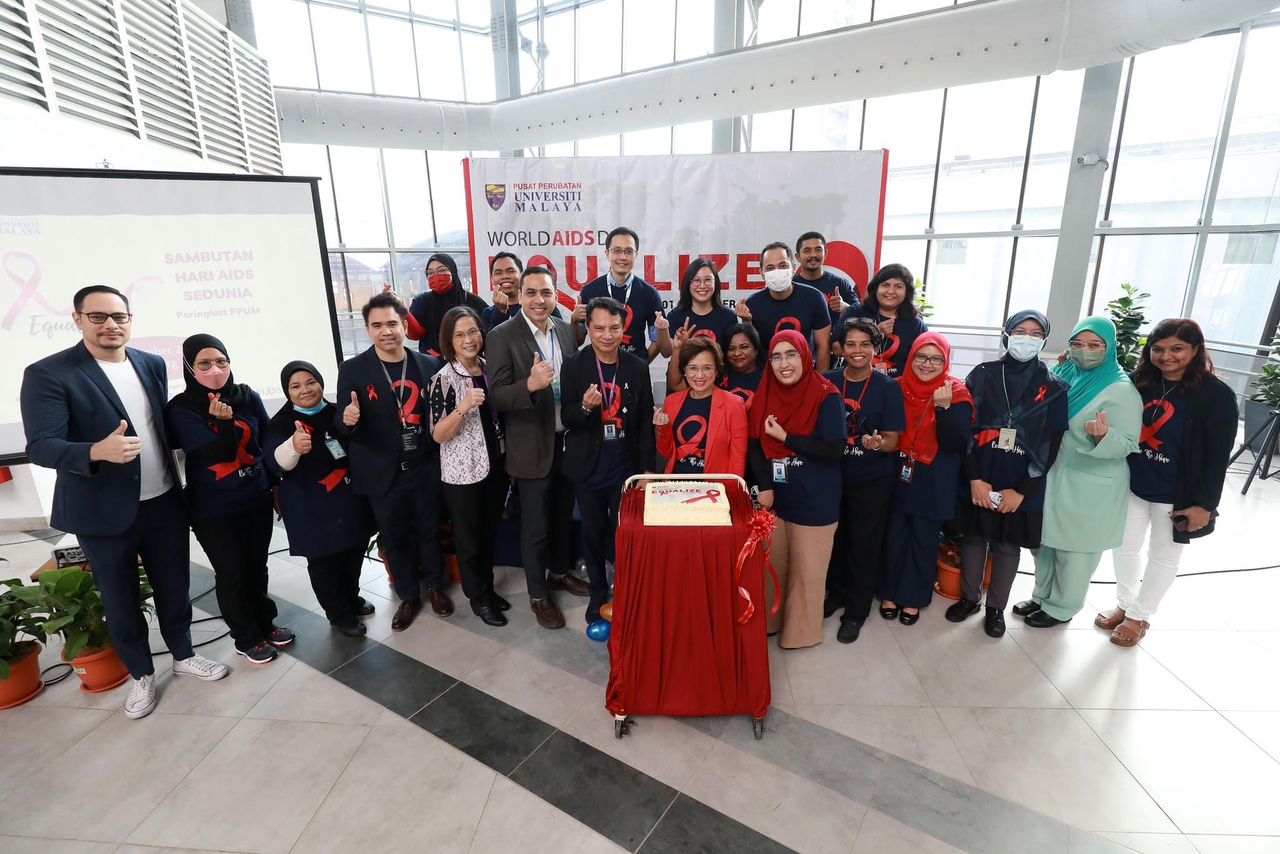KUALA LUMPUR, Dec 6 – Fear of being stigmatised as a patient with HIV is still a major barrier to care for people living with HIV (PLHIV), according to an infectious disease expert.
Dr Raja Iskandar Shah Raja Azwa, associate professor of infectious diseases at Universiti Malaya (UM), said late presentation defined as patients being diagnosed with advanced HIV remains a concern and unfortunately common.
This is because most new HIV diagnoses continue to occur at a later stage through patients presenting unwell at health care facilities with opportunistic infections, rather than through earlier self-initiated voluntary testing.
“In 2020, 41 per cent of all new HIV diagnoses in Malaysia had AIDS or baseline CD4 counts below 200. The reasons for this are complex and includes stigma and discrimination, whether perceived or experienced, when accessing health services, low health literacy, and perceived low risk of HIV infection,” Dr Raja Iskandar said in his speech at the World AIDS Day celebration last Thursday, organised by the Malaysian AIDS Foundation (MAF) and the University Malaya Medical Centre (UMMC).
“Unless these are effectively addressed, the occurrence of late presentation will persist.”
CD4 is a type of white blood cell. CD4 cell counts provide an indication of the health of a person’s immune system. A higher number indicates a stronger immune system. PLHIV with a CD4 cell count below 200 are at high risk of developing serious illnesses.
Dr Raja Iskandar, who is also president of the Malaysian AIDS Council (MAC), said fears of risk compensation and encouragement of condomless sex have also been at the root of PrEP stigma.
The number of pre-exposure prophylaxis (PrEP) initiations in Malaysia is estimated to be fewer than 2,500 patients and largely through the private sector.
“There is an urgent need to improve PrEP access,” Dr Raja Iskandar said. “Despite high clinical efficacy, implementation and scale up has lagged behind tremendously.”
PrEP is the use of an antiretroviral therapy medication by an HIV uninfected individual to prevent HIV infection before an exposure occurs. PrEP is more than 96 per cent effective if taken properly.
It was previously announced that the Ministry of Health (MOH), with assistance from The Global Fund, will soon make PrEP available for free under a two-year programme at selected public health clinics in states with high HIV prevalence. The programme is set to begin in January 2023.
Dr Raja Iskandar said stigma and discrimination has impeded the HIV response from the beginning of the epidemic.
“Even in 2022, stigma against PLHIV and the populations at risk of HIV, particularly in health care settings where we would expect people to behave more professionally and in a respectful manner, is very much alive.
“Physicians in Malaysia who expressed greater discriminatory intent against people with HIV (PWH) also expressed more negative feelings toward PWH, more HIV-related shame, and believed that PWH do not deserve good care. Physicians from surgical-based specialties were also significantly more likely to endorse discriminatory intent toward PWH.
“We need to develop stigma intervention tools which are longitudinal, multi-level and multi-component. When discussing HIV with our colleagues, we need to frame HIV as a health issue, not a moralistic one – challenge myths and misperceptions about HIV, challenge stereotypes and tell the personal stories of PLHIV.
“A personalised approach has been shown to challenge stigma most effectively and has worked well with our medical students to combat stigma,” Dr Raja Iskandar said.
The World AIDS Day Celebration at UMMC featured a photovoice exhibition, where photos taken by PLHIV and the key population groups vulnerable to HIV, such as injecting drug users, the transgender community, sex workers, and men who have sex with men, were on display.
The exhibition was organised by the Centre of Excellence for Research in AIDS (CERiA), UM, in collaboration with the University of Delaware and Yale University in the United States.
Every photograph included responses from key population groups and PLHIV on questions of what makes them happy and sad, the challenges they face, and what they wish clinicians knew about them. “Equalise” is this year’s World AIDS Day theme.
Anonymised individuals featured in the exhibit shared similar feelings of being trapped, ashamed, and not being who they want to be.
One man who has sex with other men said: “The mask I have to wear when I approach new people or forced to wear by society. People expect me to wear a certain mask to blend in with the norm. It saddens me that I have to hide who I am even when I have been through a lot to take it off.”
A transgender woman and person living with HIV said: “Some of the doctors see me as someone who committed sin, and I should repent and be as I should be.”
Others like a female sex worker, spoke about mourning the loss of loved ones due to Covid-19, while another man who has sex with men talked about finding comfort at home in a rescued cat that was abandoned as a kitten.
One person who injects drugs (PWID) said: “I need emotional guidance to constantly improve on my weaknesses in terms of my habits.”
Dr Raja Iskandar said from a human rights approach, the country needs to ensure legal protection against discrimination for key populations and PLHIV, irrespective of sexuality, gender, race.
“We need to recognise that potential criminalisation can occur in Malaysia, for example, with drug use and same-sex relationships, which contributes to stigma and discrimination as they hinder provision of evidence-based interventions and services for key populations,” he said.
“If it means that turning up at a clinic is likely to get you arrested, you are not likely to turn up at the clinic.”









